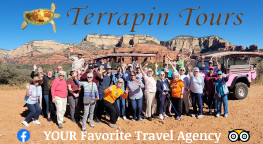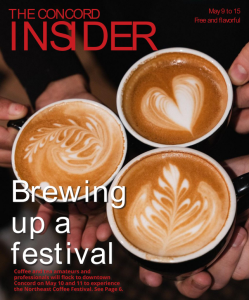A friendly middle-aged man tells me to take my shoes off. He speaks in a hushed voice.
“You're new?” he asks.
I nod.
He shows me where to put my coat and directs me to a large, open room that smells like incense. A petite woman with long brown hair is sitting on a blanket, cross-legged, with her eyes closed.
I know this serene women must be Margaret Fletcher. She's here to lead me in finding the “truth of what I am.” At least that's what the White Mountain Sangha website tells me.
Let me back up a bit.
White Mountain Sangha is an organization composed of two teachers (Fletcher and a man named Norman Scrimshaw) as well as a handful of volunteers. The group gathers a couple of times a month for meditation, a talk and a discussion or, in fewer words, a satsang. The public is welcome to join in.
For as long as I've been working at the Insider, White Mountain Sangha has been submitting their satsangs to our calendar. My curiosity finally got the best of me, and I attended my very first satsang.
This particular satsang took place at Living Yoga, 120 N. Main St, where Fletcher instructs a gentle flow yoga class on Friday afternoons. Sometimes, though, White Mountain's satsangs are held at the teacher's home.
Fletcher welcomed me and spoke in the same lulling voice the man used with me earlier. I assume Fletcher uses this voice so I can more easily slip into meditation when the time comes. However, I'm under the impression that she uses this voice in her day-to-day life, too. Nothing about this woman seems shrill or abrupt.
Fletcher explained that I could sit on a chair or the floor. Cushions and these back-support contraptions called “backjacks” are available to ensure that I'm comfortable. I went with the floor and a cushion. Fletcher brought out a backjack, just in case I needed it.
She's a wise woman, that Fletcher.
Two young women showed up and took their seats on the floor. After some idle chat about Facebook, Fletcher began. She told us she'd be leading us into a 20-minute meditation.
“Twenty minutes isn't so bad,” I said to myself.
Keep in mind: I've never meditated a moment in my life.
It took around two minutes for me to realize I had a full bladder and three minutes to be irritated by lower-back pain. While the others sat silently on their cushions, I fidgeted and adjusted my backjack.
I cursed the bottle of water I had an hour ago and attempted to distract myself. I counted to 100 and thought about what I might eat when I got home. I listened to the man next to me breath in and out, trying to sync up my breath with his.
I called up my go-to relaxation image: I'm on my honeymoon in the Dominican Republic. We had a hammock outside of our room that I never actually used. But thinking about it and the Dominican's warm, balmy nights calms me.
Eventually, the traffic on Main Street sounded less like cars driving by, and more like waves breaking in the ocean.
That lasted for only a few moments before Fletcher hit a gong to signify that meditation time was up. I opened my eyes. The others around me got out of their cross-legged poses and made themselves more comfortable. I happily did the same.
Fletcher led a talk about anger. “(We need to) understand that anger doesn't define us,” she instructed. “(Ask yourself) what is this anger? What is the nature of it? What is the source of it?”
The other satsangers occasionally made sounds of agreement, but mostly remained silent.
“When there's the discomfort of crabbiness, anger and fear, just allow it to be here.”
“Mmm,” the woman to my right nodded.
Fletcher talked for about 30 minutes. The last half hour of satsang was reserved for us to ask Fletcher questions. About anything.
One of the women explained that a certain situation in her life brought her incredible sadness. “How do I deal with this sadness, especially when it comes as such a surprise?” she asked.
The woman to my right wanted to know if it was okay that she didn't get caught up in the drama or negative attitude of others. She clarified that although she cares very deeply for people, she just couldn't be bothered by getting worked up over such things.
In both scenarios, Fletcher took in what each woman said. She let them talk without interruption before sharing her thoughts. Fletcher didn't so much give advice, but take turns questioning each woman. “Have you confronted your sadness?” she asked the first woman.
At some point during their discussions, the women became satisfied. They had stumbled upon their answers themselves. Fletcher just served as a guide.
“Satsang is a gathering for those interested in living in an awakened way of being,” Fletcher later told me. “People should come if they are interested in that, including finding out just what that means.”
I'm still not sure what that means. But I do acknowledge that I could benefit from sitting still a little longer and listening more than talking. If I need a cushion and a backjack to learn that, then so be it.
For more information and the satsang schedule, visit whitemountainsangha.org.





















